The Biden Administration unveiled a new rule, marking the biggest shift in the gun industry since the Brady Bill – closing the so-called “gun show loophole.”
Under Final Rule 2022R-17F, firearm transactions – whether private, online, or in-store — will be subject to a background check.
“Under this regulation, it will not matter if guns are sold on the internet, at a gun show, or at a brick-and-mortar store: if you sell guns predominantly to earn a profit, you must be licensed, and you must conduct background checks,” attorney general Merrick Garland told reporters during a press call.
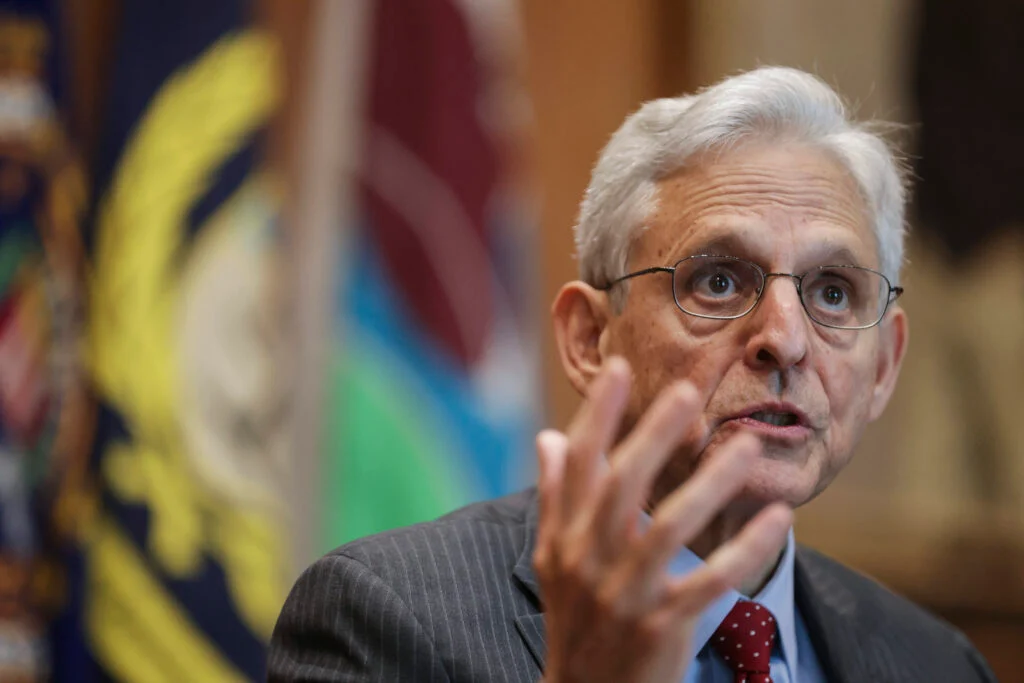
What does this mean for gun owners, and what changes are coming?
Keep reading as we walk you through the Final Rule, where it came from, and how this impacts you.
Table of Contents
Loading…
What is Final Rule 2022R-17F?
Authored by the Bureau of Alcohol, Tobacco, Firearms, and Explosives under the Department of Justice, the Final Rule 2022R-17F: “Engaged in the Business” As a Dealer in Firearms broadens and redefines who is considered to be in the firearms dealing business.
Under the Ruling, any persons deemed to be “engaged in the business” must have a Federal Firearms License and that means they must also conduct a background check when transferring a firearm.
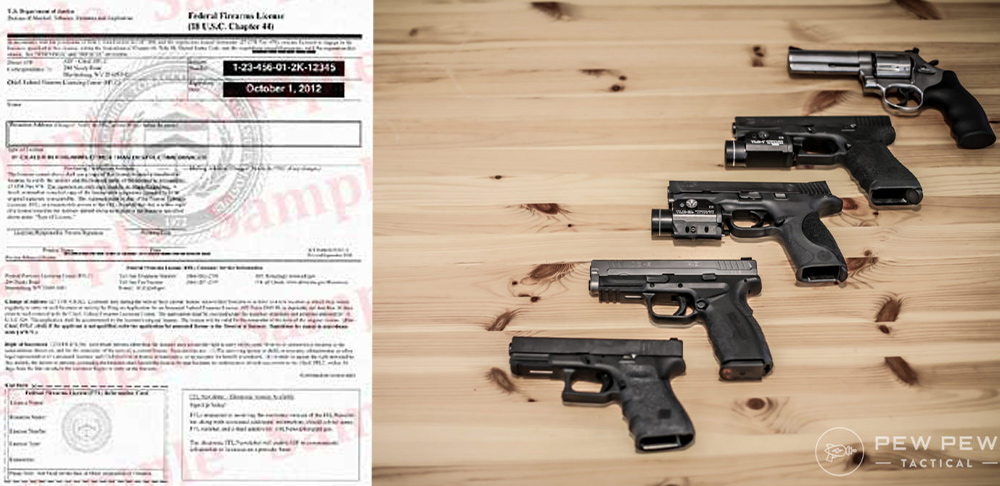
Further, the Rule makes it clear that its scope is not just in brick-and-mortar but applies to online sales and gun shows. Basically, where the gun sale happens doesn’t matter. If you’re considered to be “engaged in the business,” then you have to run a background check, period.
But who is a dealer under this Ruling? Keep reading to find out…
Who Is “Engaged in the Business” As A Dealer in Firearms?
Housed in the 466-page Final Rule, the ATF lays out new definitions of who is considered to be a dealer in firearms or rather “engaged in the business.” While the Bureau has a hard time nailing down a specific definition, they offer loose guidelines.
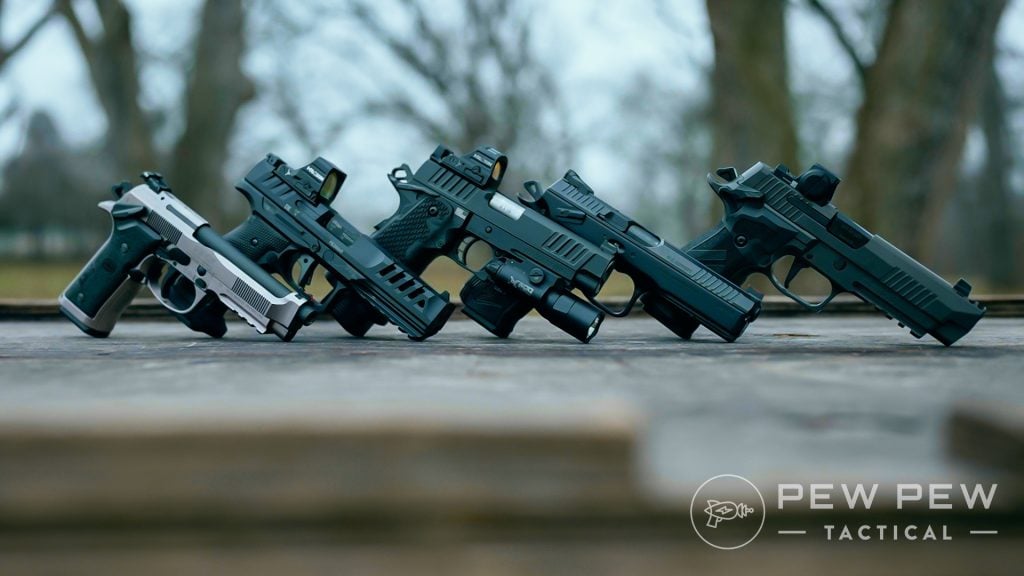
In essence, a person is considered to be in the business if they meet the following criteria:
- Repetitive process of buying/selling of guns to earn a profit
- Activities that indicate business engagement
- Repeatedly buying/selling firearms in a short time spanSelling guns soon after purchasingBuying or selling guns that suggest an ongoing business, such as devoting time, attention, and labor to that end
- Using ads or marketing to sell multiple guns
It’s worth noting that previously, a person had to be focused on making a living from the sale of firearms to be considered a dealer, but the Ruling amends that. Now, a person is considered “engaged in the business” if the intention is to make a profit – the ability to sustain livelihood is no longer relevant.
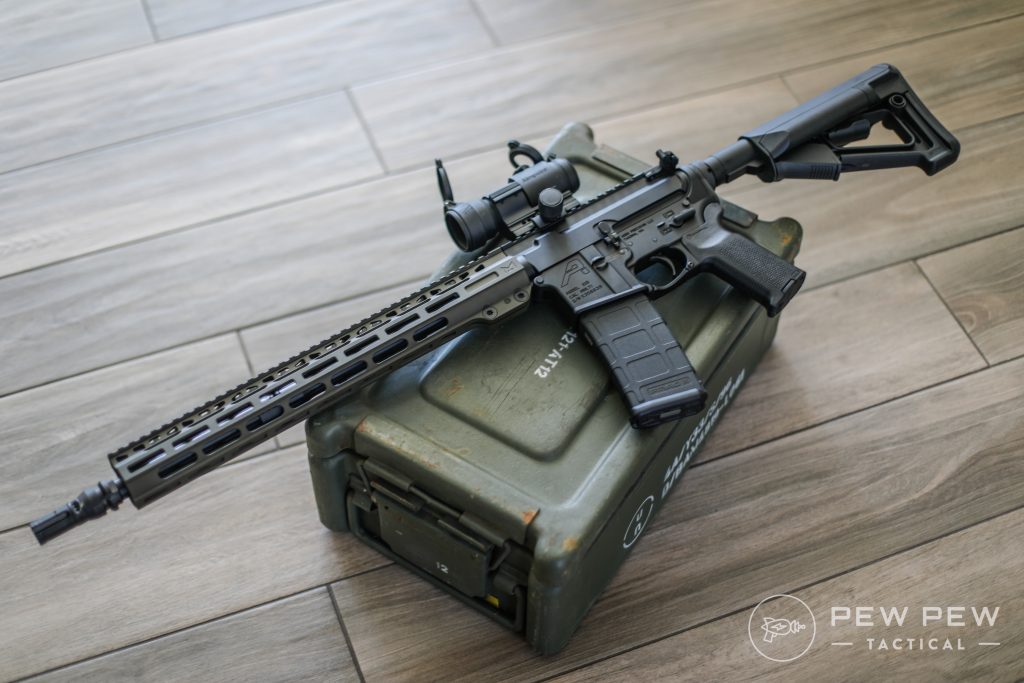
Exemptions are carved out for hobbyist gun owners who occasionally trade firearms for the betterment of their personal collections. The ATF says that does not qualify as “engaged in the business” and, therefore, hobbyists do not need a Federal Firearms License (FFL) as they would not be dealers.
TL;DR: If you’re buying and selling guns in a short time span and/or you’re buying/selling with the intent to make a profit, the ATF considers you in the biz, and you’ll need to possess an FFL and conduct background checks.
Where Did the Final Rule Come From?
The “Engaged in the Business” Final Rule was the result of the Bipartisan Safer Communities Act (BPSCA) – a bill that was rushed through Congress and signed into law in 2022.
Under the BPSCA, provisions were outlined to impose “enhanced background checks” and also clarify who is considered a dealer and, therefore, needs an FFL.
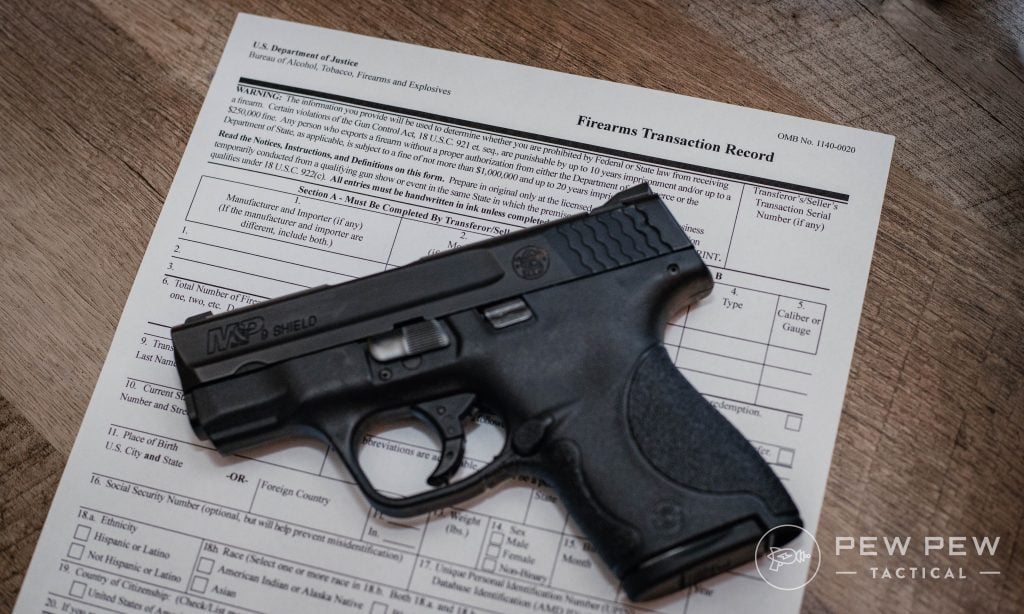
“Every year, thousands of unlicensed gun dealers sell tens of thousands of guns without a background check, including to buyers who would have failed one – domestic abusers, violent felons, and even children,” Vice President Kamala Harris said in a statement.
“This single gap in our federal background check system has caused unimaginable pain and suffering. Today, as the head of the White House Office of Gun Violence Prevention, I am proud to say that all gun dealers must conduct background checks no matter where or how they sell.”
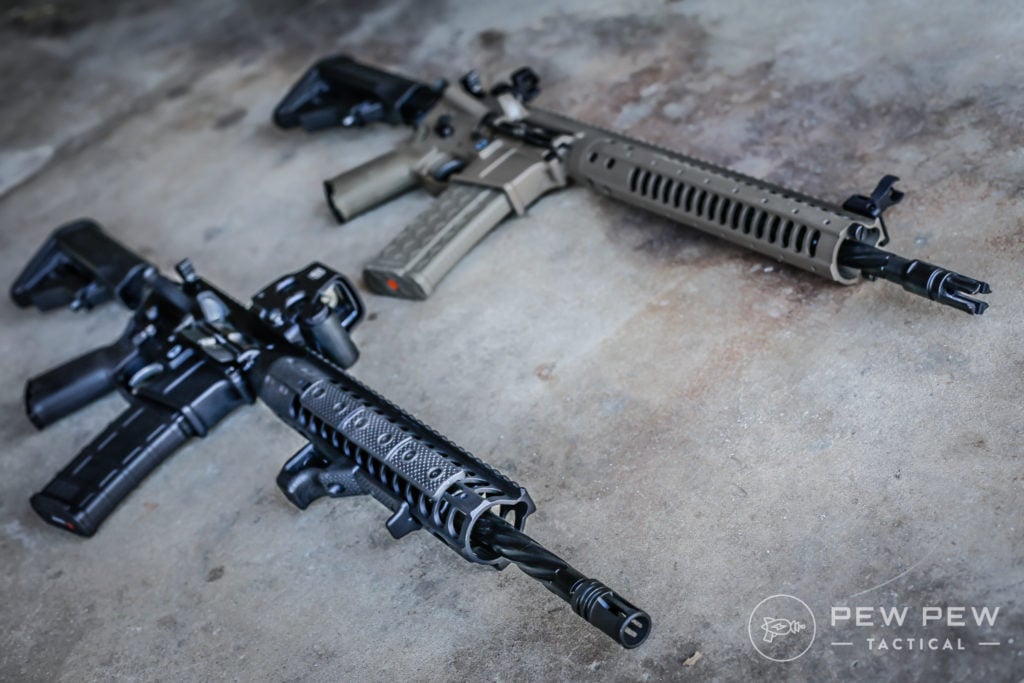
Though the Final Rule re-brands who does and doesn’t need a license, President Joe Biden said that’s not enough. He has indicated he wants Congress to take it a step further with sweeping universal background checks.
“My Administration is taking action to make sure fewer guns are sold without background checks. This is going to keep guns out of the hands of domestic abusers and felons,” Biden said.
“And my Administration is going to continue to do everything we possibly can to save lives. Congress needs to finish the job and pass universal background checks legislation now.”
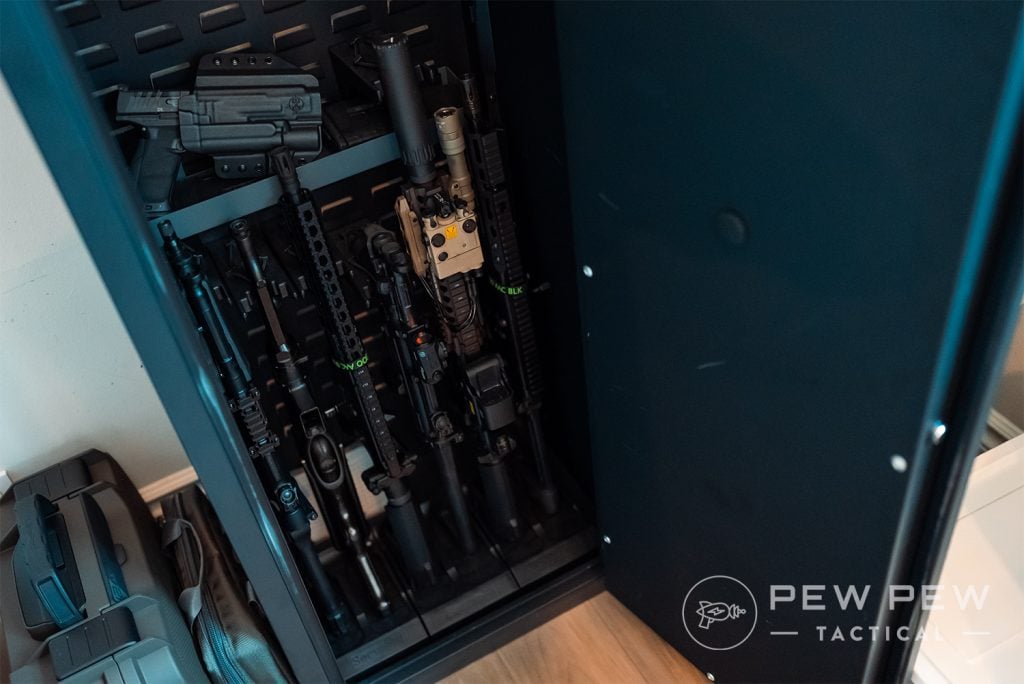
Pro-2A groups, on the other hand, have said that the BPSCA and its provisions, like this Final Rule, are merely an attempt to grab guns from law-abiding citizens.
“The president is claiming this will keep guns out of the hands of felons, and he knows better,” Second Amendment Foundation founder and Executive Vice President Alan M. Gottlieb said in a press release.
“If history has taught us anything, it would be that criminals do not obtain the guns they use through legitimate channels, and that gun control laws have never prevented criminals from obtaining a firearm. All this rule will accomplish is to place yet another burden on honest citizens wanting to exercise their Second Amendment rights.”
SAF notes that according to 2016 research conducted by the federal Bureau of Justice Statistics, gun shows account for less than 0.8% of guns used by convicted criminals.
What This Means for Gun Owners?
If you are a hobbyist or someone who sometimes sells a gun to buy something else for their personal collection – nothing changes…for now.
If you like to buy/sell on a more consistent basis or you’re a regular at the gun show, you’re going to need to get your FFL, and you’ll have to make purchasers go through the same background checks as brick-and-mortar stores.
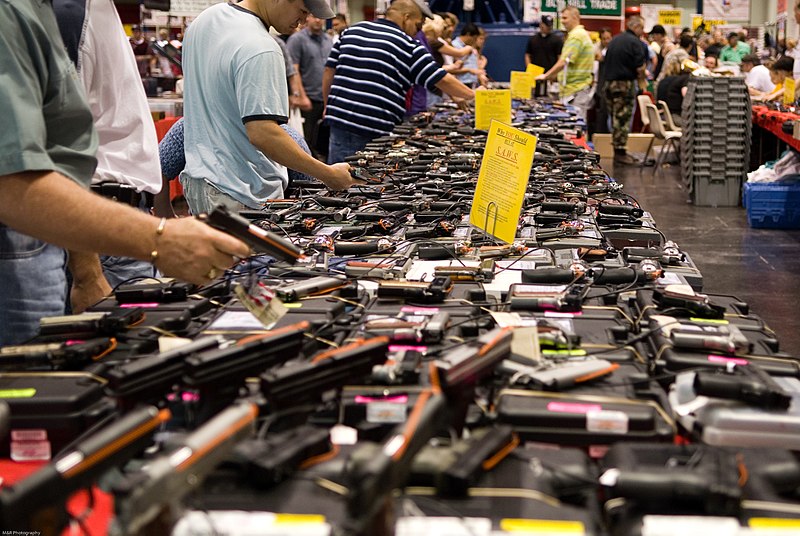
As with any Final Rule, it takes effect 30 days after it’s been published in the Federal Registrar. As of April 12, the Final Rule has not been officially published, but our best guess is that it’s coming in mid-to-late May.
This ruling has opened the door for potential universal background check laws to be considered by Congress. Additionally, it continues to show that the ATF can and will amend federal law.
Several pro-gun groups and legislators have responded to the announcement, promising swift action.
“It is almost certain to be challenged in federal court,” the Second Amendment Foundation said.
FAQs
Does every sale have to go through a licensed dealer and include a background check?
Not necessarily. Private sales are still allowed, so long as the person selling the gun does not meet the criteria of being engaged in the business.
If I only dedicate a couple hours to selling guns, am I considered a dealer?
Under the Final Rule, yes. According to the ATF any person who engages in the business even part-time is considered a dealer.
Does the Final Rule impact gunsmiths or pawnbrokers?
The ATF says no. The Final Rule does not change anything in regards to current laws governing pawnbrokers and gunsmiths.
If I sell my gun and make a profit, am I considered in the business?
Nope. The intent has to be with what the ATF calls "obtaining pecuniary gain." To put it simply, the intent has to be to make a financial profit as opposed to selling to replace that gun or because you no longer want to own that particular gun.
Is this a Universal Background Check Law?
For now, no. It does not set up a federal requirement for citizens to conduct a background check when selling a firearm (though some states do require that on the state level).
Final Thoughts
Final Rule 2022R-17F: “Engaged in the Business” As a Dealer in Firearms redefines who’s considered to be in the firearms dealing business.
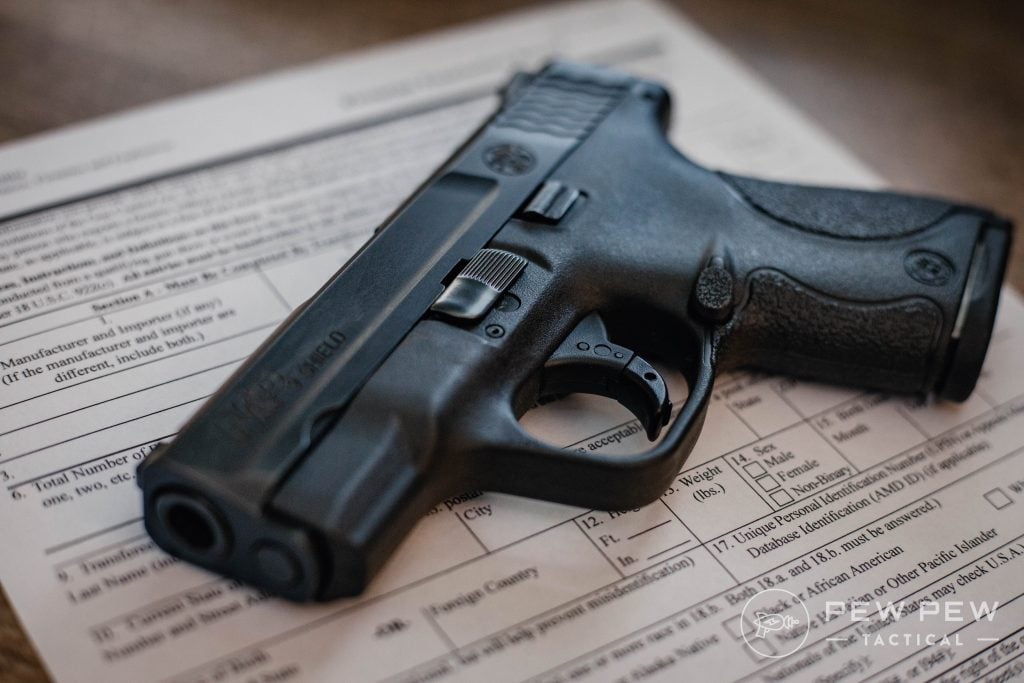
If you sell occasionally to improve your gun collection, you’re okay for now. However, if you sell more frequently and for profit, you will need a license moving forward.
Editor’s Note: This is a developing story, and Pew Pew Tactical journalists will continue to follow it closely. We will update this article as new developments and details emerge.

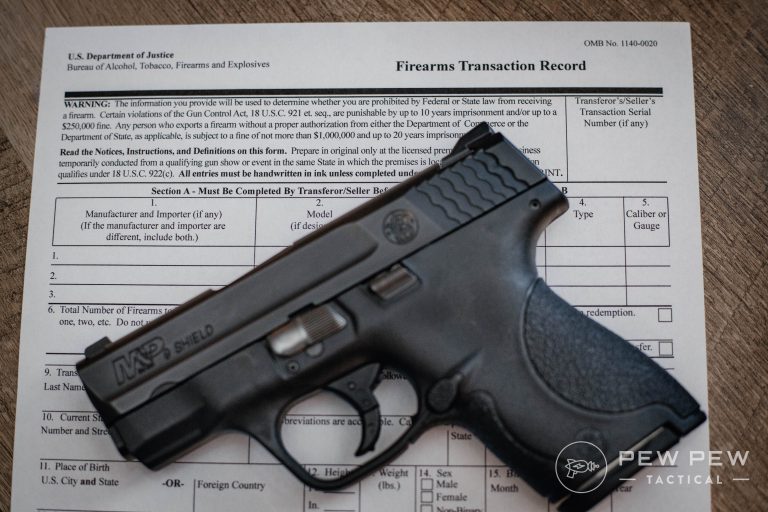
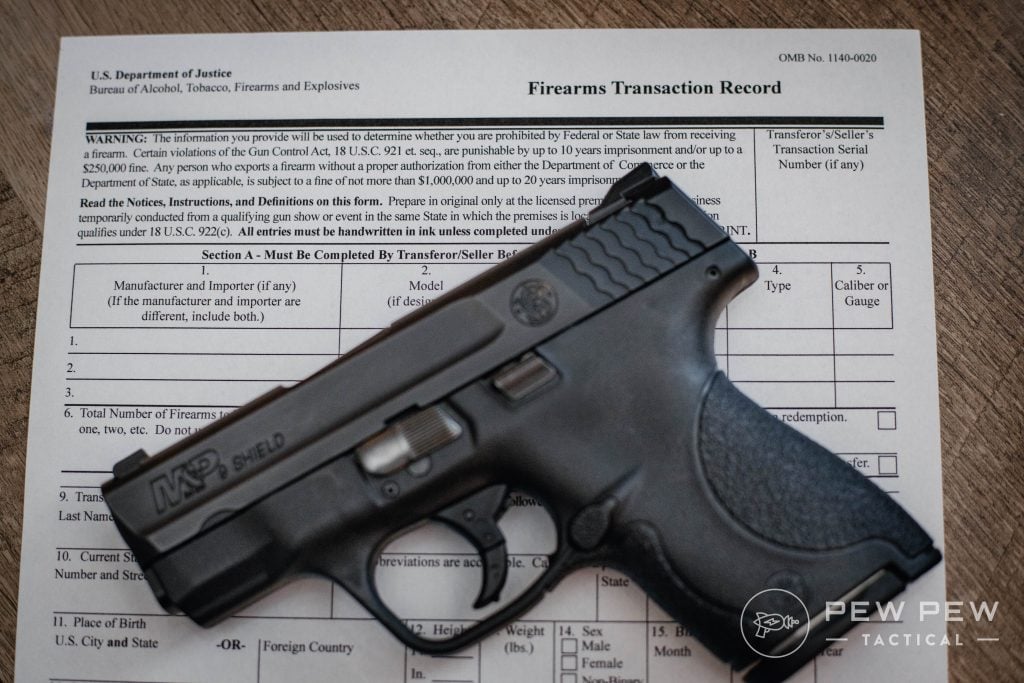







16 Leave a Reply
I want to be clear: I will not give one inch in the fight to protect our right to keep and bear arms. Like every law-abiding American, I absolutely condemn all forms of violent crimes involving firearms, and I believe those who misuse any firearm should be held accountable for their actions. But responsible, law-abiding firearm owners should not be punished because of the illegal actions of those who knowingly misuse firearms or obtain firearms illegally. This reason, among others, is why I have made defending the Second Amendment a primary focal point of my legislative agenda.
That said, bills such as H.R. 121, the "Gun Violence Reduction Resources Act," H.R. 125, the "Gun Safety: Not Sorry Act," and H.R. 127, the "Sabika Sheikh Firearm Licensing and Registration Act," among others, are nothing more than Democratic ploys to strip away the Second Amendment rights of law-abiding citizens. Moreover, while these bills are marketed as solutions to curtail gun crimes, they do nothing to address how violent criminals obtain firearms, nor do they make it harder for them to obtain a firearm.
Write your congressman and senator today!
Support GOA, 2A FOUNDATION. The DEMOCRATS are using 'rule making's to enact LAW, which is the preview of the Congress. It takes TIME and $$ to litigate. Support these organizations.
To hell with that. I'm selling here and there, but not for profit, just to get rid of stuff. How am I at fault if some POS goes and kills people? This UN-law will eventually include me if people don't stand up and reject this with a resounding "NO"! I can imagine protests at gun shows against raids.
The ATF does not have authority to change laws, only congress as approved by the senate. They want everyone's guns so you don't use them on a treasonous politician, who would like to play God.
Explain again why background checks are a bad idea? The gun lobby are the most selfish a-holes on the planet.
1. Owning a gun is a Constitutional RIGHT! Do you need a background check to express your opinion, 1st Amendment right (Freedom of Speech) here?
2. Background checks are the first step to gun registration, (see Nazi Germany 1930's, China, Venezuela, etc)
3. Anti 2nd Amendment people are the stupidest sheeple on the planet!
Then make them free asshole..or you can pay for them..
Sorry about your head injury. Get well soon.
Enjoy killing innocent people Fed..
Assert your fifth amendment right and don't tell them jack!...This is not only a violation of the 2nd Amendment but the 4th, 5th and 6th...
On future bills of sale, don't put a date or price information...
BTW, sell them another object and gift them a free firearm in the deal...Then, the firearm will not be what was sold...
This "rule" does not apply in America and the AG has 30 days to apologize or forfeit citizenship. That's the law.
AG has another country he can go to after he refuses to apologize.
No one is "okay for now." The "rule" is so vague that they can make you a felon and RUIN YOUR LIFE FOREVER any time they want to. And they will.
The rule says that ONE sale could be “in the business of selling firearms”, and evidence would be things like posting the sale on a website, adding a price tag, having a sign.
This rule makes it so you can only essentially sell to a friend/family member. You can’t market the sale of your firearm in any way, or else that is evidence of “being in business”.
Federal agencies need to be stripped of all regulatory power. They should advise Congress only. Congress alone should be making the laws/rules that we are forced to live under.
Agree partially… just abolish the federal agencies completely and reduce expenditures of the Federal Government by at least 80%